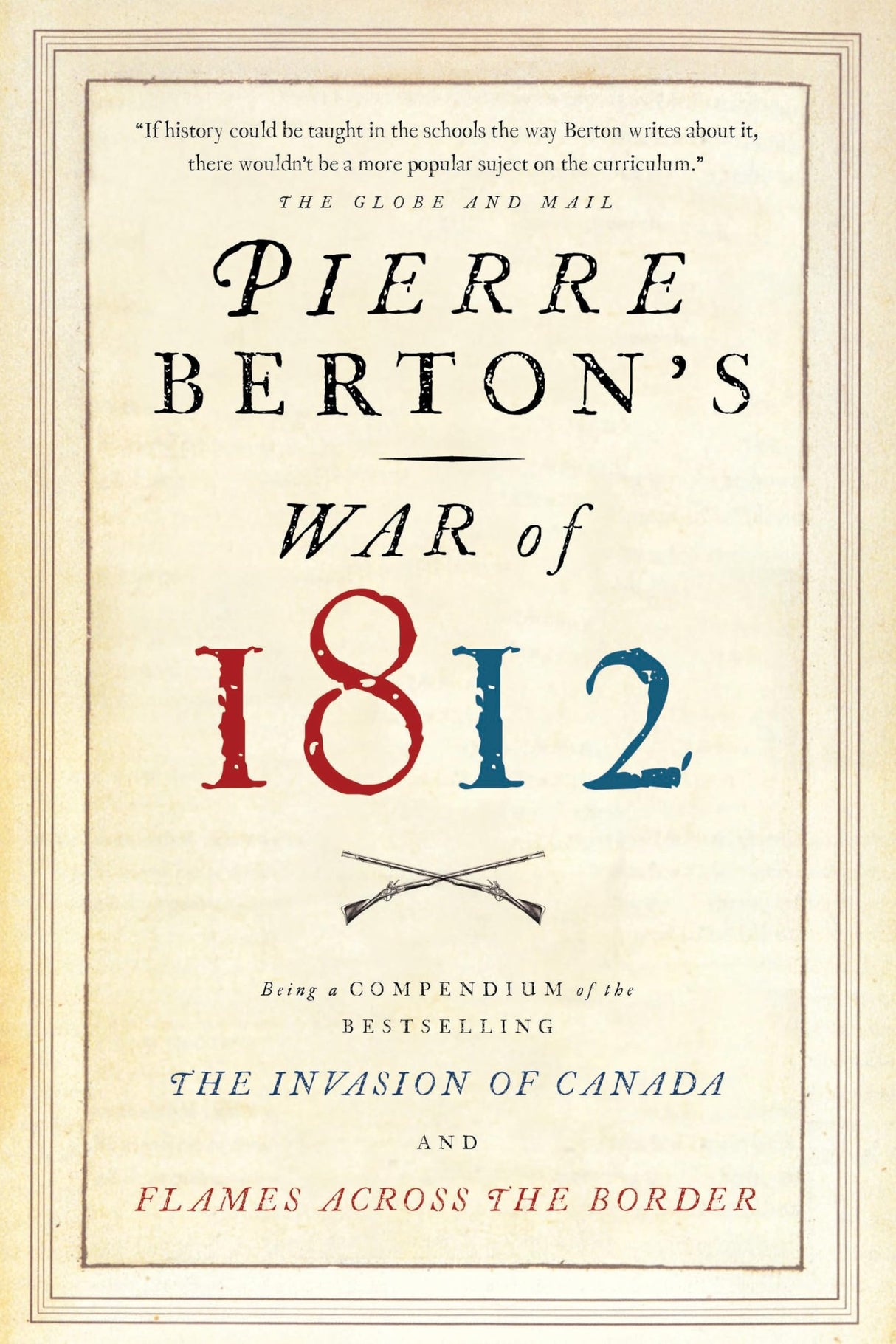Pierre Berton's War of 1812
Pierre Berton's War of 1812 is backordered and will ship as soon as it is back in stock.
Couldn't load pickup availability
Genuine Products Guarantee
Genuine Products Guarantee
We guarantee 100% genuine products, and if proven otherwise, we will compensate you with 10 times the product's cost.
Delivery and Shipping
Delivery and Shipping
Products are generally ready for dispatch within 1 day and typically reach you in 3 to 5 days.
Author: Berton, Pierre
Brand: Anchor Canada
Color: Cream
Binding: paperback
Format: Deckle Edge
Number Of Pages: 928
Release Date: 01-11-2011
Details: Product Description
To commemorate the bi-centenary of the War of 1812, Anchor Canada brings together Pierre Berton's two groundbreaking books on the subject.
The Invasion of Canada is a remarkable account of the war's first year and the events that led up to it; Pierre Berton transforms history into an engrossing narrative that reads like a fast-paced novel. Drawing on personal memoirs and diaries as well as official dispatches, the author has been able to get inside the characters of the men who fought the war - the common soldiers as well as the generals, the bureaucrats and the profiteers, the traitors and the loyalists.
The Canada-U.S. border was in flames as the War of 1812 continued. York's parliament buildings were on fire, Niagara-on-the-Lake burned to the ground and Buffalo lay in ashes. Even the American capital of Washington, far to the south, was put to the torch. The War of 1812 had become one of the nineteenth century's bloodiest struggles.
Flames Across the Border is a compelling evocation of war at its most primeval - the muddy fields, the frozen forests and the ominous waters where men fought and died. Pierre Berton skilfully captures the courage, determination and terror of the universal soldier, giving new dimension and fresh perspective to this early conflict between the two emerging nations of North America.
About the Author
Born in 1920 and raised in the Yukon, PIERRE BERTON worked in Klondike mining camps during his university years. He spent four years in the army, rising from private to captain/instructor at the Royal Military College in Kingston. He spent his early newspaper career in Vancouver, where at 21 he was the youngest city editor on any Canadian daily. He wrote columns for and was editor of
Maclean's magazine, appeared on CBC's public affairs program "Close-Up" and was a permanent fixture on "Front Page Challenge" for 39 years. He was a columnist and editor for
the Toronto Star and was a writer and host of a series of CBC programs. For his immense contribution to Canadian literature and history Berton has received a dozen honourary degrees, is a member of the Newsman's Hall of Fame, and is a Companion of the Order of Canada. Pierre Berton passed away in Toronto on November 30, 2004.
Excerpt. © Reprinted by permission. All rights reserved.
The invasion of Canada, which began in the early summer of 1812 and petered out in the late fall of 1814, was part of a larger conflict that has come to be known in North America as the War of 1812. That war was the by-product of a larger struggle, which saw Napoleonic France pitted for almost a decade against most of Europe. It is this complexity, a war within a war within a war, like a nest of Chinese boxes, that has caused so much confusion. The watershed date “1812” has different connotations for different people. And, as in Alice’s famous caucus race, everybody seems to have won
something, though there were no prizes. The Russians, for instance, began to win their own War of 1812 against Napoleon in the very week in which the British and Canadians were repulsing the invading Americans at Queenston Heights. The Americans won the last battle of their War of 1812 in the first week of 1815—a victory diminished by the fact that peace had been negotiated fifteen days before. The British, who beat Napoleon, could also boast that they “won” the North American war because the Treaty of Ghent, which settled the matter, had nothing to say about the points at issue and merely maintained the status quo.
This work deals with the war that Canada won, or to put it more precisely
did not lose , by successfully repulsing the armies that tried to invade and conquer British North America. The war was fought almost entirely in Upper Canada, whose settlers, most of them Americans, did not invite the war, did not care about the issues, and did not want to fight. They were the victims of a clash between two major powers who, by the accident
EAN: 9780385676489
Package Dimensions: 9.2 x 6.1 x 2.2 inches
Languages: English





